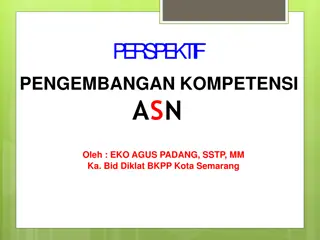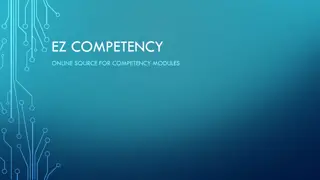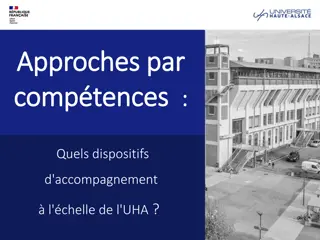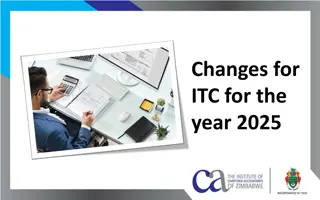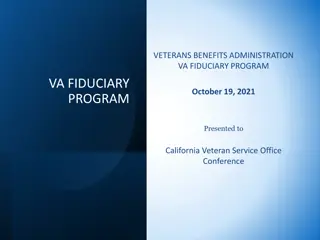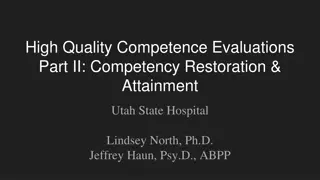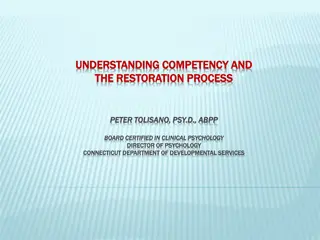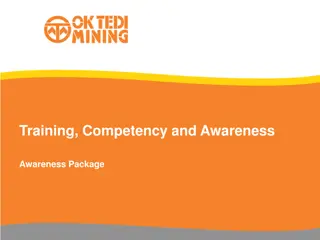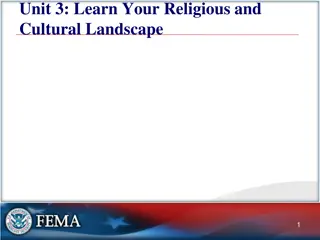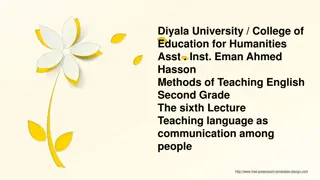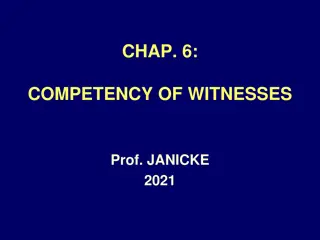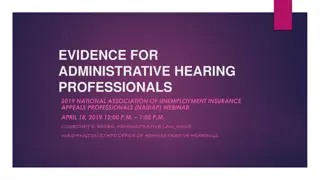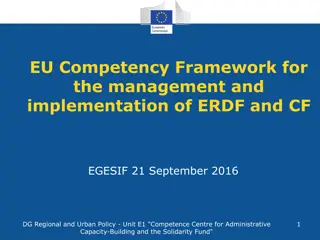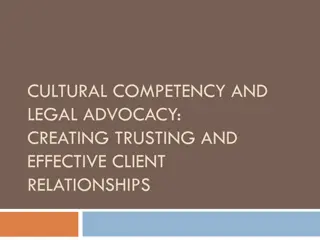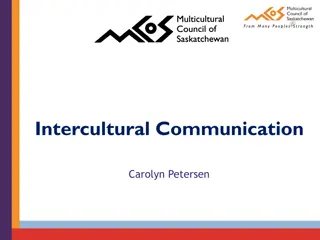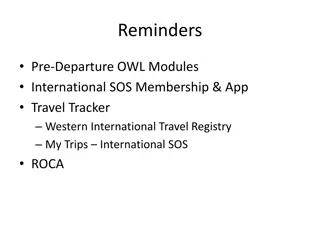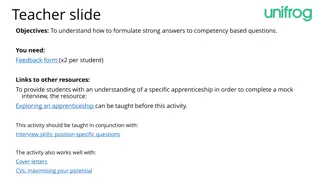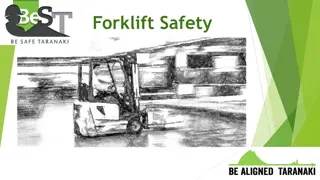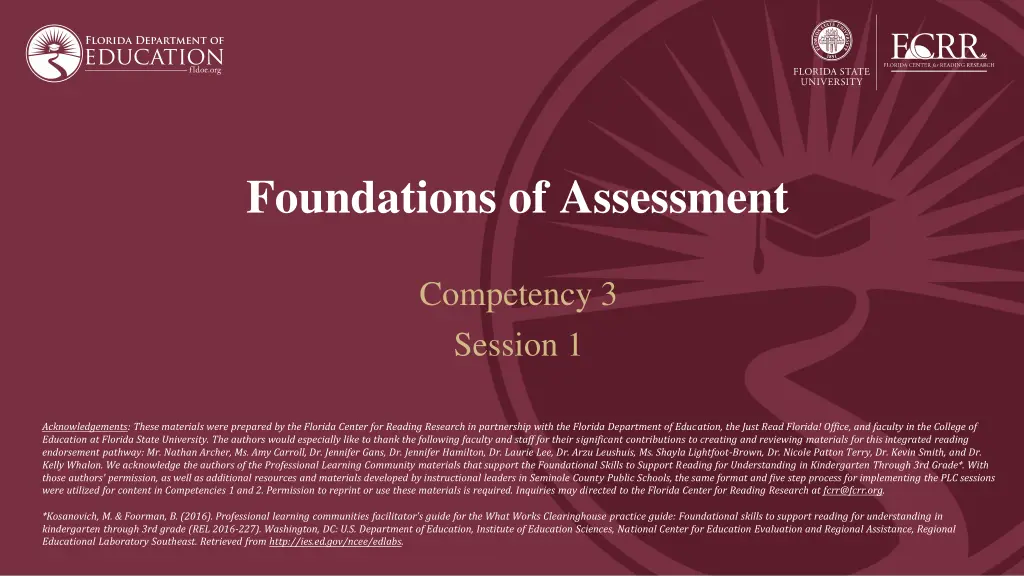
Understanding Reading Assessment Frameworks
Explore the foundations of reading assessment with a focus on literacy and reading comprehension. Learn about the Simple View of Reading and its implications for assessment, as well as the classification of reading problems based on word recognition and language comprehension. This module provides insights into effective reading instruction strategies aligned with research-based practices.
Download Presentation

Please find below an Image/Link to download the presentation.
The content on the website is provided AS IS for your information and personal use only. It may not be sold, licensed, or shared on other websites without obtaining consent from the author. If you encounter any issues during the download, it is possible that the publisher has removed the file from their server.
You are allowed to download the files provided on this website for personal or commercial use, subject to the condition that they are used lawfully. All files are the property of their respective owners.
The content on the website is provided AS IS for your information and personal use only. It may not be sold, licensed, or shared on other websites without obtaining consent from the author.
E N D
Presentation Transcript
Foundations of Assessment Competency 3 Session 1 Acknowledgements: These materials were prepared by the Florida Center for Reading Research in partnership with the Florida Department of Education, the Just Read Florida! Office, and faculty in the College of Education at Florida State University. The authors would especially like to thank the following faculty and staff for their significant contributions to creating and reviewing materials for this integrated reading endorsement pathway: Mr. Nathan Archer, Ms. Amy Carroll, Dr. Jennifer Gans, Dr. Jennifer Hamilton, Dr. Laurie Lee, Dr. Arzu Leushuis, Ms. Shayla Lightfoot-Brown, Dr. Nicole Patton Terry, Dr. Kevin Smith, and Dr. Kelly Whalon. We acknowledge the authors of the Professional Learning Community materials that support the Foundational Skills to Support Reading for Understanding in Kindergarten Through 3rd Grade*. With those authors' permission, as well as additional resources and materials developed by instructional leaders in Seminole County Public Schools, the same format and five step process for implementing the PLC sessions were utilized for content in Competencies 1 and 2. Permission to reprint or use these materials is required. Inquiries may directed to the Florida Center for Reading Research at fcrr@fcrr.org. *Kosanovich, M. & Foorman, B. (2016). Professional learning communities facilitator s guide for the What Works Clearinghouse practice guide: Foundational skills to support reading for understanding in kindergarten through 3rd grade (REL 2016-227). Washington, DC: U.S. Department of Education, Institute of Education Sciences, National Center for Education Evaluation and Regional Assistance, Regional Educational Laboratory Southeast. Retrieved from http://ies.ed.gov/ncee/edlabs.
Purpose of this Module This course provides a foundation in assessment with an emphasis on literacy/reading and is required for the Florida Reading Endorsement (Competencies 3) Grounded in the principles of research-based reading instruction and the Reading Endorsement Guiding principle that teaching reading for understanding is an ongoing systematic, problem solving process, teachers will implement and analyze assessments, and select appropriate instruction/interventions based on the collected data.
The Simple View of Reading (Gough & Tunmer, 1986) Word Recognition X Language Comprehension = Reading Comprehension Word recognition and language comprehension are relatively independent of each other, but are both highly correlated with reading comprehension. The Simple View Explained What implications does the Simple View of Reading have on assessment?
Classification of Reading Problems: The Simple View of Reading Word Recognition Language Comprehension Poor Good Dyslexia Non-specified Good Specific Comprehension Deficit Poor Mixed Kamhi, Catts, & Adolff, 2012
Foundational Skills for Effective Reading Language Comprehension Vocabulary (expressive and receptive; breadth and depth) Background knowledge Language structures (syntax, semantics) Inference generation Print concepts Text structures Word Recognition Phonological awareness Alphabet recognition Letter/sound correspondence Word recognition Nonword recognition Spelling Sight words Oral reading fluency Using the rope model, what specifically do we need to make sure we are assessing when children present reading difficulties?

